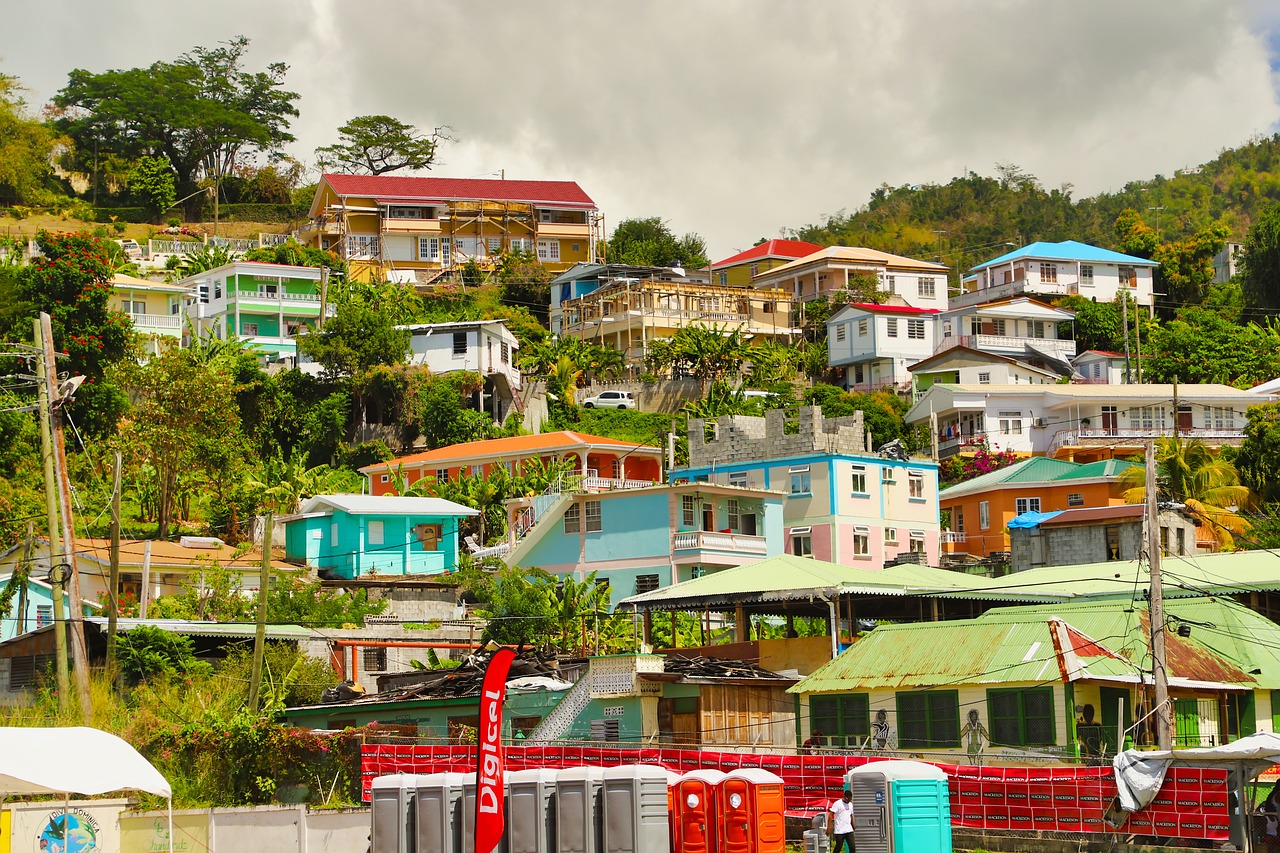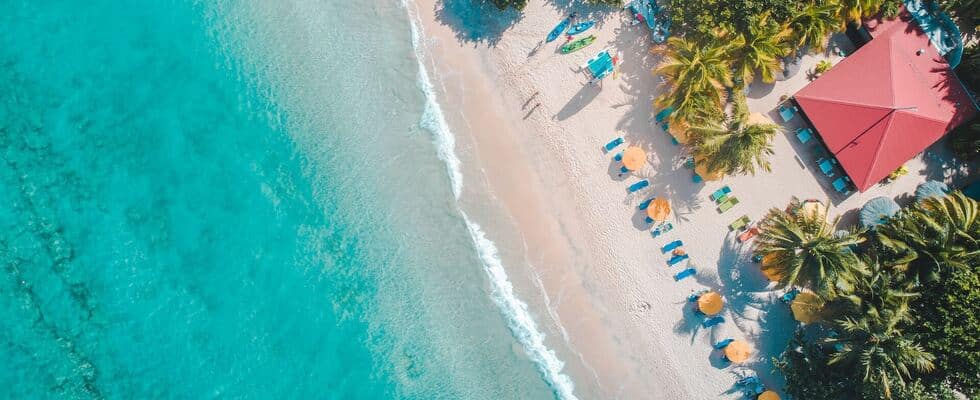The Caribbean is known for offering a slower-paced lifestyle, beautiful beaches, a pleasant climate, delicious food, and a low cost of living. These factors make the region a hotspot for tourists looking to enjoy a holiday in the sun, as well as foreign nationals looking to invest in the various profitable industries of many Caribbean islands.
With so much to offer, it’s no surprise that many investors and their families are interested in relocating to the Caribbean. Of course, costs will vary depending on the island you’re looking at and the type of lifestyle you lead. So, in this article, we’ll give you an overview of the factors that contribute to the cost of living in the Caribbean, from real estate prices and transportation costs to taxes and more.
Caribbean Real Estate Costs
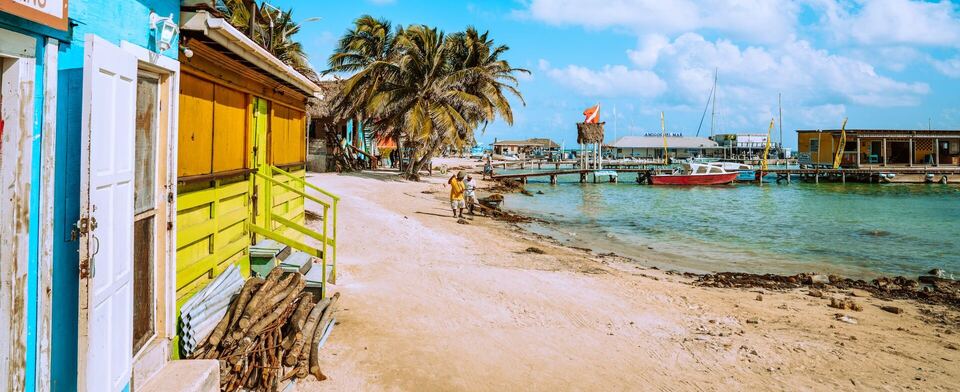
Caribbean real estate can be quite a profitable investment, particularly because of the region’s thriving tourism industry as well as the opportunity to acquire Caribbean citizenship. Places like St Vincent and the Grenadines, Dominica, and the Dominican Republic offer a relatively low cost when it comes to purchasing real estate, with average prices ranging between $1,000 and $1,500 per square meter.
Property in Western Caribbean places like Jamaica is more expensive, with average prices sitting between $2,000 and $3,000 per square meter. No matter where you are buying property in the Caribbean, prices will vary depending on location. Generally, real estate in the city center of an island will be more expensive than if you purchase real estate further outside the city center.
Properties along the Caribbean coast, particularly along world-class beaches or popular destinations for activities like scuba diving, often have high prices due to high demand among foreign investors. The cheapest places to buy property for budget-conscious investors are rural parts of a Caribbean country, which offers more reasonable prices.
The average price of real estate in seven Caribbean countries:
- St Vincent and the Grenadines: $1,095
- Dominican Republic: $1,426
- Trinidad and Tobago: $1,804
- Grenada: $1,911
- The Bahamas: $1,968
- Jamaica: $2,230
- Barbados: $3,087
These prices do not include various costs and fees that foreign buyers will encounter when purchasing Caribbean real estate, such as taxes, fees, and the cost of obtaining an Alien Landholding License.
These prices do not include various costs and fees that foreign buyers will encounter when purchasing Caribbean real estate, such as taxes, fees, and the cost of obtaining an Alien Landholding License.
Foreign investors can purchase real estate in several Caribbean destinations and acquire citizenship. These Caribbean islands include:
- Antigua and Barbuda
- Dominica
- Grenada
- St Kitts and Nevis
- St Lucia
Properties must be pre-approved by the country’s Caribbean Citizenship Unit. Various property types are available, including residential homes and luxury hotels. Qualifying investments in real estate start from $200,000.
Cost of Living in Caribbean CBI Countries
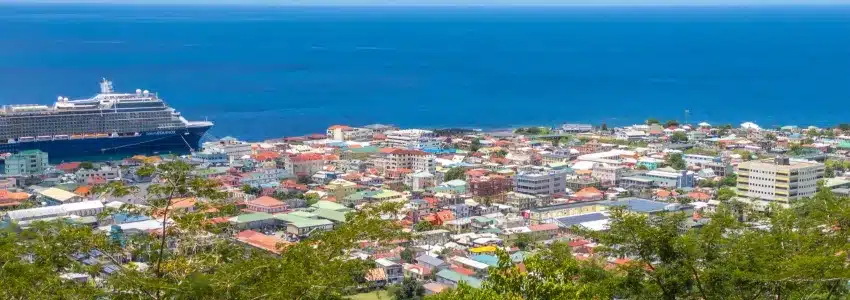
Thanks to its natural beauty, warm tropical climate, world-class shopping, white sand beaches, and laidback island life, Caribbean tropical islands are a dream destination for everyone from digital nomads and families to retirees and international travelers. Additionally, the Caribbean region is an excellent option for profitable investment opportunities, thanks to the stable governments of Caribbean islands and thriving local markets.
As mentioned, five countries offer a route to citizenship through investment. Of these five Caribbean countries, Grenada and Dominica are the most affordable to live in. Generally speaking, a single person can live comfortably on an average of $650 to $700 per month, excluding rent and utilities.
Cost of living in Antigua and Barbuda
When living in Antigua and Barbuda, a single person can live on a monthly budget of around $670, excluding rent. The cost of rent ranges between $370 and $740 per month for a one-bedroom apartment and between $1,110 and $1,455 a month for a three-bedroom apartment.
A basic utility bill will amount to around $302 per month, while a monthly pass for public transport costs around $33. A three-course meal for two at a mid-level restaurant costs around $92, while restaurant prices for a a meal at an inexpensive restaurant cost around $9.
Antigua and Barbuda citizenship by investment
The Antigua and Barbuda Citizenship by Investment Program offers four investment options: A non-refundable contribution to the National Development Fund (NDF), a donation to the University of the West Indies Fund, an enterprise investment, and a real estate investment in shares of government-approved real estate projects. Qualifying investment starts from $100,000.
Benefits of Antigua and Barbuda citizenship by investment
- Minimal physical stay requirement of five days during the first five years of citizenship
- Access to beneficial tax systems
- Visa-free travel to over 140 countries
- Obtain citizenship in three to four months
- Include family members in your passport by investment application
- Dual citizenship is allowed
Take a look at our Antigua and Barbuda Citizenship by Investment Ultimate Guide by local experts

Cost of living in Dominica
A single person’s monthly expenditure comes to an average of $623 in Dominica, not including rent. Monthly rent for a one-bedroom apartment ranges between $350 and $360, depending on whether you are in the city center or not. For a three-bedroom apartment, the monthly rent is around $$742 outside the city center and $1,158 in the city center.
A one-way ticket on local transport is $1.11, and a three-course meal for two at a mid-range restaurant costs around $57. Imported goods tend to be more expensive, while locally-produced food tends to be more affordable.
Dominica citizenship by investment
The Dominica Citizenship by Investment program offers investors two options: A non-refundable contribution of at least $100,000 to the Economic Diversification Fund (EDF) or a minimum investment of $200,000 in government-approved real estate projects.
Benefits of Dominica citizenship by investment
- Most affordable Caribbean CBI program for an individual
- Application processing takes between two and three months
- No residency or language requirements
- The main applicant can include family members in their passport application
- Visa-free travel to over 140 countries, including China and Russia
- Dominica allows dual citizenship
Take a look at our Dominica Citizenship by Investment Ultimate Guide by local experts

Cost of living in Grenada
Grenada has the lowest cost of living of the five Caribbean countries that offer citizenship by investment programs. In fact, one person can live on less than $650 per month, not including rent. The average monthly rent for a one-bedroom apartment ranges from $432 outside the city center to $776 in the city center. For a three-bedroom apartment, the average rent is $654 outside the city center and $1,695 in the city center.
Basic utilities amount to around $185 per month. A three-course meal for two at a mid-range restaurant costs around $79, and a monthly pass for public transportation costs around $37.
Grenada citizenship by investment
Under the Grenada Citizenship by Investment Program, applicants can choose between two investment options: A non-refundable contribution to the National Transformation Fund (NTF) or a real estate investment. The minimum investment amount is $150,000 for a single applicant under the NTF option or $220,000 for shares in government-approved real estate projects.
Benefits of Grenada citizenship by investment
- Visa-free travel to over 140 countries
- Grenada recognizes dual citizenship
- You can include your family members in your citizenship application
- The citizenship process takes between three and four months
- No residency or language requirements
- Access to Grenada’s tax-friendly environment
- Grenada citizens can apply for a US E-2 Visa
Take a look at our Grenada Citizenship by Investment Ultimate Guide by local experts

Cost of living in St Kitts and Nevis
While the cost of living in St Kitts and Nevis can be slightly more expensive than in other Caribbean countries, it is still around 20 percent less expensive than places in the US and the UK. Rent for a one-bedroom apartment ranges between $610 and $770 per month, while a three-bedroom apartment costs between $1,555 and $3,500 per month.
Monthly utilities amount to around $96. The country’s citizens should be aware of their use of air conditioning as electricity prices as generally expensive. A three-course meal for two at a mid-level restaurant costs around $92. As with other Caribbean countries, imported goods tend to cost more than goods produced in the local markets.
St Kitts and Nevis citizenship by investment
The Saint Kitts and Nevis Citizenship by Investment Program offers three investment options: A non-refundable contribution to the Sustainable Island State Contribution (SISC), a real estate investment, or a contribution to an Approved Public Benefit Project. The cheapest investment requirement is $250,000.
Benefits of St Kitts and Nevis citizenship by investment
- Obtain citizenship in four months
- Enjoy visa-free travel to over 140 countries
- No test or residency requirements
- Include family members in your citizenship by investment application
- Benefit from the nation’s tax-friendly environment
- St Kitts and Nevis allows dual citizenship
Take a look at our St Kitts and Nevis Citizenship by Investment Ultimate Guide by local experts

Cost of living in St Lucia
St Lucia is widely considered one of the most affordable Caribbean islands. Monthly expenses food and transport costs amount to an average of $645, while basic utilities amount to around $111 per month. The cost of rent for a one-bedroom apartment ranges between $324 (outside the city center) and $508 (in the city center. For a three-bedroom apartment, rent is between $653 (outside the city center) and $891 (in the city center).
A three-course meal for two at a mid-range restaurant is about $65, while a meal at an inexpensive restaurant is just over $7. Imported goods tend to cost more, while locally produced goods tend to be more affordable.
St Lucia citizenship by investment
The Saint Lucia Citizenship by Investment Program offers four investment routes: A government fund donation, real estate investment, business investment, and government bonds. The minimum investment to qualify is $100,000.
Benefits of St Lucia citizenship
- Great tax benefits for citizens
- Obtain St Lucia citizenship in the to four months
- No residency requirements
- Include family members in your citizenship by investment application
- Visa-free travel to over 140 countries, including the UK and Schengen countries
Take a look at our St Lucia Citizenship by Investment Ultimate Guide by local experts

Caribbean Transportation Costs
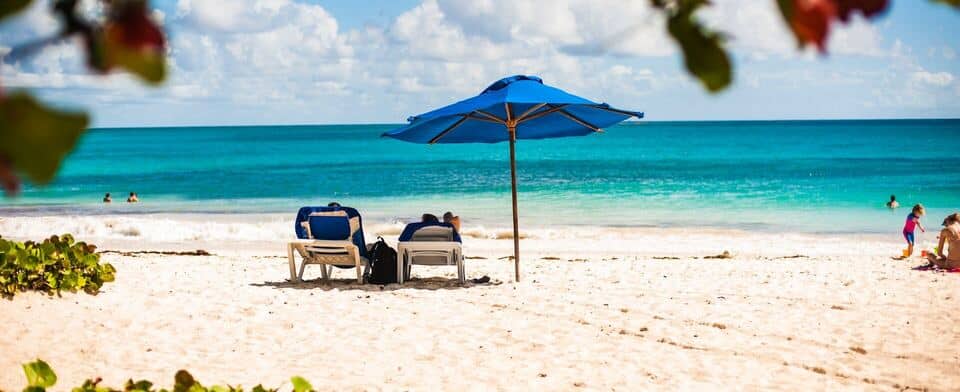
The cost of traveling around a Caribbean island will vary depending on the island, how you travel, and its size. Small islands like Grand Cayman in the Cayman Islands are relatively walkable due to their size. Other options for transport include driving and taking a bus or a taxi.
A monthly transport pass can range between $42 in the Dominican Republic and $66 in Barbados. Petrol costs are higher in most Caribbean countries than in the United States. According to Numbeo, the average price for a liter of fuel in Jamaica is $1.35 and $1.51 in Costa Rica compared to $0.96 in the US.
The cost of traveling to other Caribbean islands varies depending on the departure and destination country. Destinations such as Jamaica, Puerto Rico, and the Dominican Republic provide budget-friendly one-way flights to and from the US, with prices as low as $100, available through various budget airlines like Spirit Airlines and JetBlue.
Travelers and residents can go island-hopping between most Caribbean islands, using cruise lines like Carnival, Royal Caribbean, and Norwegian. Caribbean cruises docking in eight to ten islands cost as little as $1,400.
Caribbean Taxes
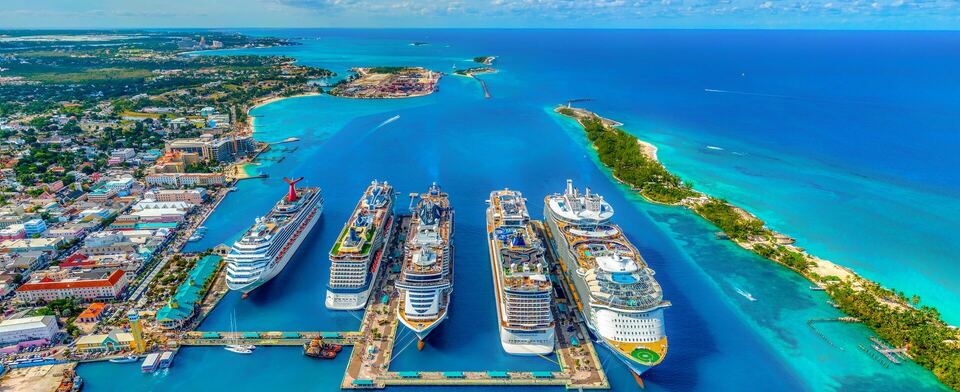
Many destinations in the Caribbean are considered tax havens, thanks to their favorable tax policies and exemptions. While you will still be required to pay taxes, the specific amount will vary depending on the Caribbean island and whether or not you’re a tax resident.
The Organization for Economic Co-operation and Development (OECD) helps to set international tax standards, while the Caribbean Community (CARICOM) influences tax policies through regional agreements and economic policies. Many Caribbean countries do not levy capital gains tax, inheritance tax, wealth tax, or income tax on worldwide income. Some taxes are charged on a sliding scale, and others are not levied for companies in specific sectors.
The Turks and Caicos Islands is a tax-neutral jurisdiction, allowing individuals and businesses to benefit from favorable tax policies and incentives, including zero income tax.
Many Caribbean countries also have Double Tax Treaties to ensure that residents do not pay double taxes. If you are thinking of moving to a Caribbean country, it can be beneficial to research its tax laws to help you plan for your and your family’s future.
Why live in a Caribbean country?

As you can see, the cost of living in the Caribbean can be quite affordable and comes with many benefits. You can enjoy a peaceful life in a tropical paradise where the warm climate means plenty of opportunities to make the most of outdoor activities, such as snorkeling among the marine life, exploring the islands, or treating yourself with a stay at one of the many luxurious villas.
With relatively low everyday expenses, living in the Caribbean can provide the chance to save money if that is your wish. For those looking to obtain Caribbean citizenship, the countries that offer citizenship by investment programs provide the perfect opportunity to obtain citizenship and build your dream life in the Caribbean. With a variety of benefits that cater to different needs, it’s easy to see why people from all over are interested in living in the Caribbean.
Frequently Asked Questions about the Cost of Living in the Caribbean
Grenada, Jamaica, the Dominican Republic, Cuba, and Dominica are some of the most budget-friendly Caribbean islands. Antigua and Barbuda, Anguilla, The British Virgin Islands, the Cayman Islands, Martinique, Montserrat, and St Barts are considered some of the safest Caribbean islands to live on. It is important to remember that every island will have its more expensive and more affordable areas, as well as its safer and slightly less safe areas to live in. As such, research is important when deciding where to live in the Caribbean.
The cost of living in the Caribbean varies from island to island. Some islands, such as the Bahamas, are more expensive, while others, such as Dominica, offer a more affordable cost of living. The type of lifestyle you lead in most islands will also affect whether your cost of living is high or low. However, you are sure to find a place in the Caribbean that caters to your budgetary requirements.
The average cost of living in the Caribbean will vary from island to island based on your lifestyle and whether you rent or own property. Livincost.org, a crowd-sourced database, states that Cuba, the Dominican Republic, Haiti, Jamaica, and Trinidad and Tobago are the most affordable Caribbean countries to live in. The estimated expenses of one person with a moderate lifestyle living in any of these states are around $560, excluding rent.
The cost of living across different Caribbean islands varies based on different factors, such as the cost of rent, utilities, groceries, school (for families with children), transportation, taxes, etc. The average monthly cost for one person, excluding rent, can range between $560 in more affordable islands and $924 in more expensive islands.
Barbados and the Bahamas are the most expensive islands to live on among independent Caribbean countries. The estimated monthly costs for one person, excluding rent and utilities, are around $704 in Barbados and $924 in the Bahamas. This cost of living is almost twice as expensive as living in Haiti and the Dominican Republic, which are the most affordable Caribbean states.
British Overseas Territories like the Cayman Islands and the British Virgin Islands have two of the highest cost of living in the Caribbean regarding everyday expenses as well as boasting the region’s most expensive properties.
Healthcare and insurance prices in the Caribbean vary depending on the country, the level of care required, and the individual’s circumstances and age. Caribbean healthcare can be relatively expensive, particularly for senior expats who do not have access to public healthcare systems. Nonetheless, private healthcare insurance can be secured for reasonable prices. A basic plan from Sagicor in Jamaica costs around $50 for a single person and $100 for a family of four.
The cost of living in the Caribbean is generally more affordable than in the United States and Europe. Of course, this will depend on the Caribbean island you reside on. Generally speaking, the cost of living in places like St Kitts and Nevis, Dominica, Grenada, St Lucia, and the Dominica Republic is 20 percent more affordable than places in the US and Europe.
How much money you need to live in the Caribbean as a digital nomad or for a comfortable retirement will vary depending on your lifestyle choices and the Caribbean island you live on. If you like to eat out at local restaurants frequently, your cost of living will be higher than someone who prefers cooking at home. People who enjoy modern comforts like air conditioning will also need more money to live in the Caribbean. A comfortable monthly budget to live in the Caribbean ranges from $2,000 to $5,000.

